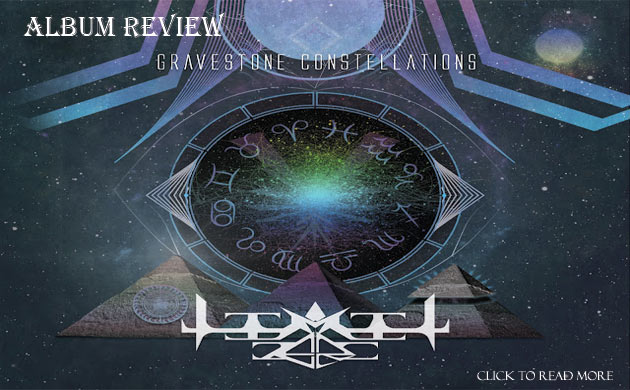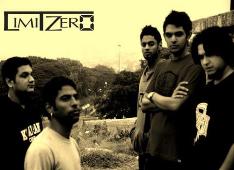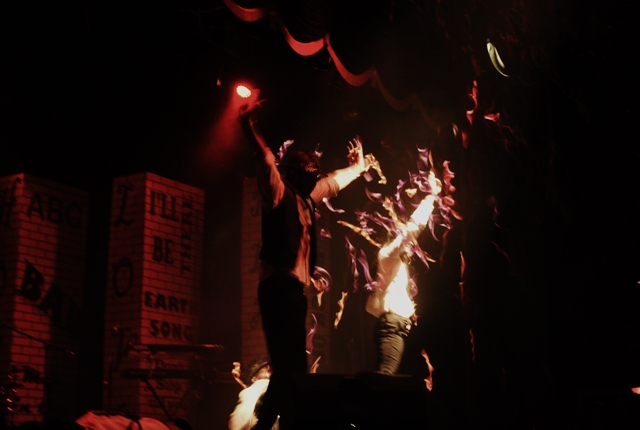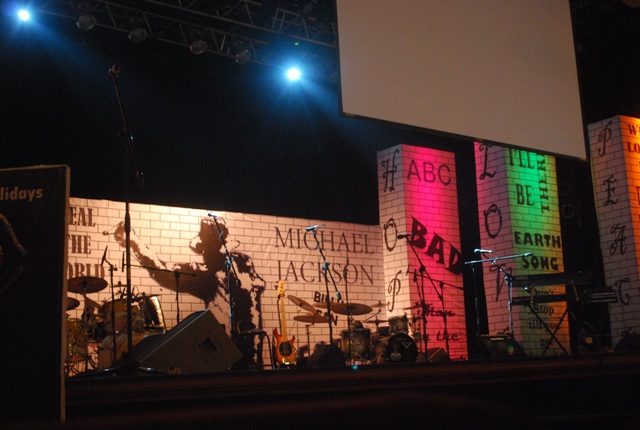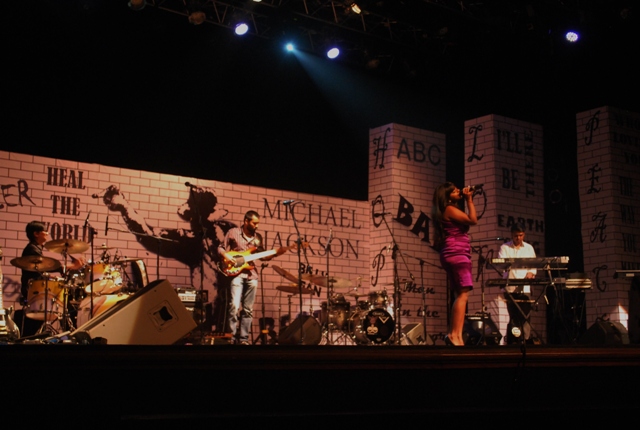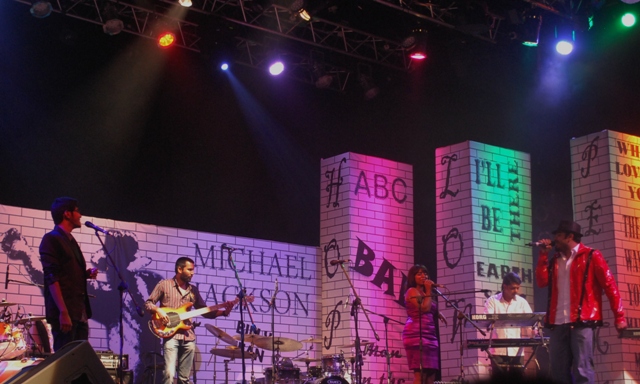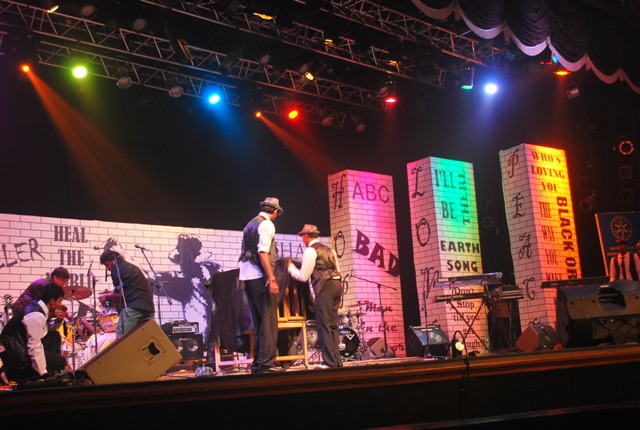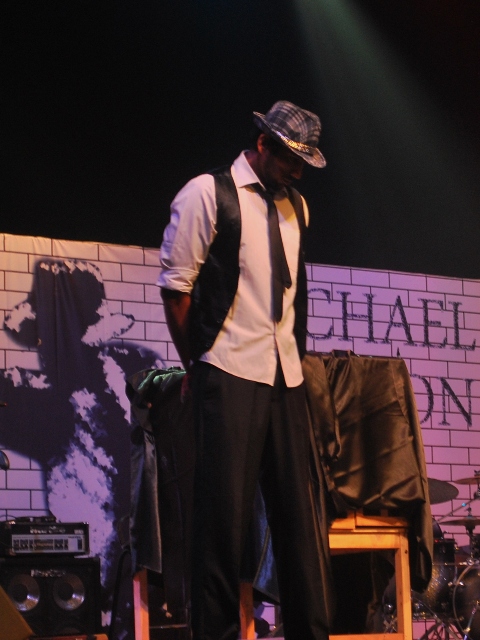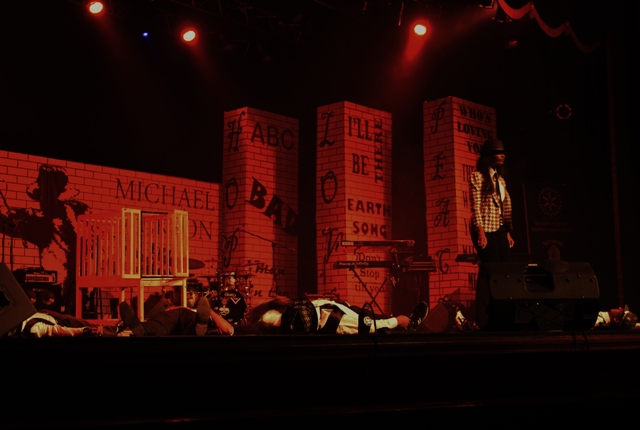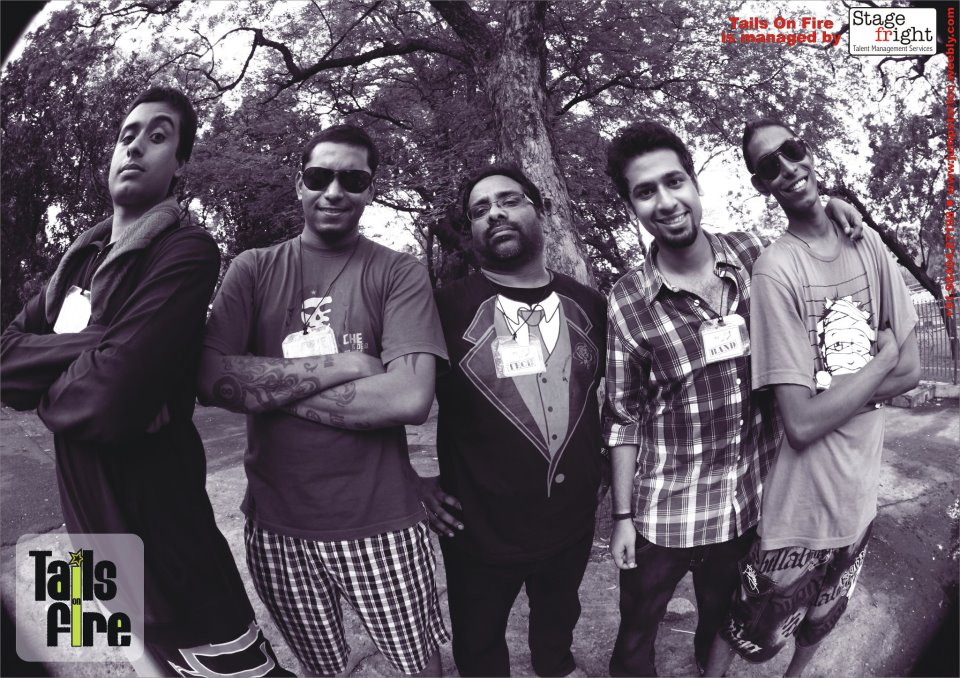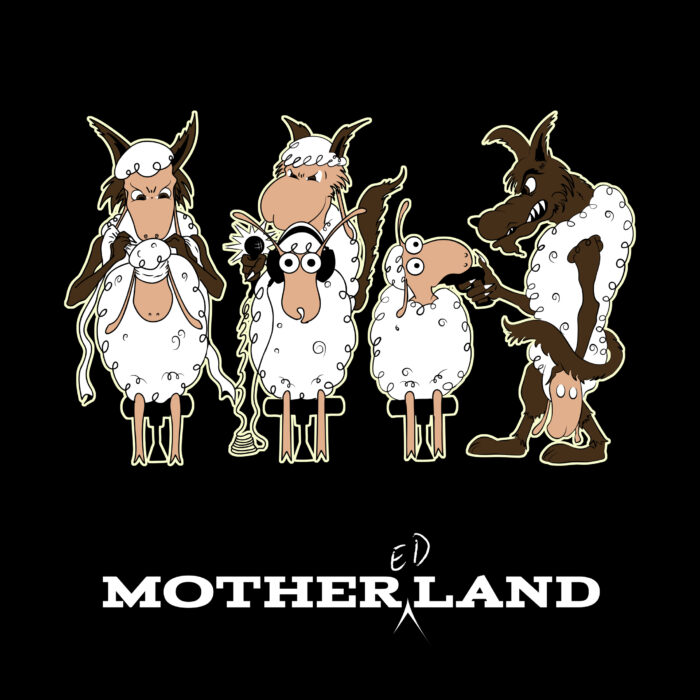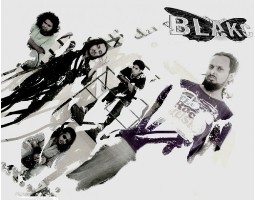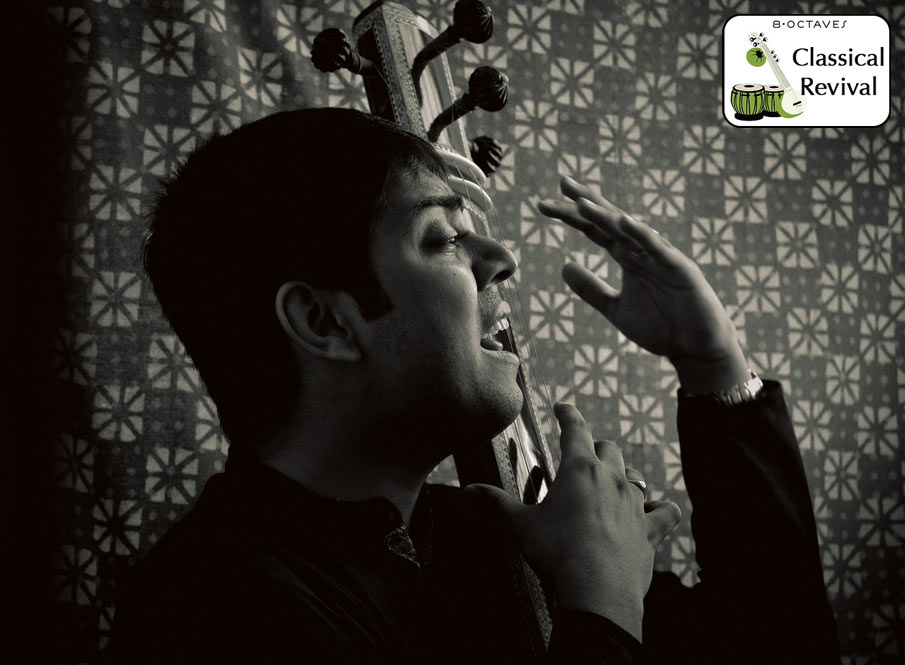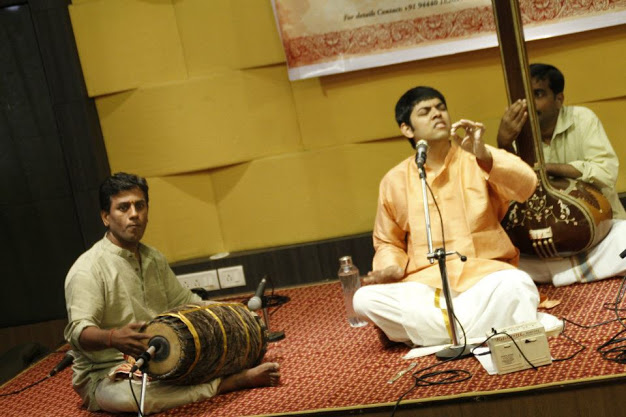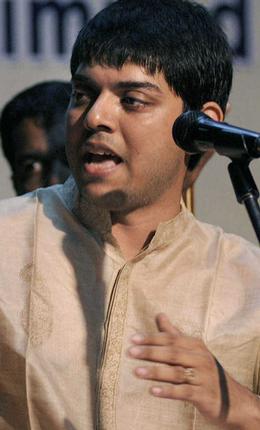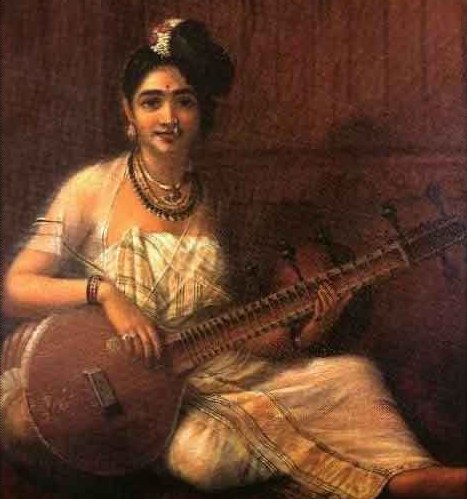The year was 2008. It is said that Satan had some lust on God, they had sex and Satan was prone to multiple orgasms, there was a big bang. And that’s how Workshop was formed. Hailing from the city of dreams – Mumbai, we caught up with the Heavy Mental band for a quick chat before they launch the new album
Eight Octaves: Take us through the journey of being just a backing band for Demonstealer’s ESP guitar workshop to being India’s first full-fledged Comedy Metal band.
DS: Workshop was formed differently than DR was. This was more of the involvement of 3 people namely Riju, Raj, Hamza and myself. I didn’t expect that we’d have line up changes and tough situations but it has all come our way. We’ve been around for close to 5 years now and it’s been a rollercoaster ride. The last 2 years have been particularly hard dealing with the changes in line up and getting this album written and recorded and finally released. It’s been a huge work load for us. The sort really was we got together, wrote and album, played every show we got till Raj got paid 44lakhs P.A at his job and quit after which we slowed down and then Riju had a sex change operation and became Dr.Hex and quit Workshop and then we struggled for a year with recordings, got Devesh Dayal and Aditya Kadam to join us on lead guitar and bass and completed recorded the album and here we are now, ready to conquer the world.
HK: Sahil, your last sentence has 83 words. I’ve read stories with lesser words than that. Our band’s journey is very similar to the journey of the protagonist in every Karan Johar movie. Sahil was a loving, handsome yet lonely young man. He longed for companionship. He met Riju and Raj on www.metalshaadi.com. When they required a drummer, I joined on the condition that they’d keep a distance of 3 feet from me at all times. We became friends and decided to go back to college in the UK at the age of 76 (sahil) and 42 (the rest of us). We won a few Grammies whilst competing in the local college scene and then we realized that our motherland wanted us back. We came back to India and formed Workshop. After which Raj and Riju divorced Sahil and unfriended me on facebook. Sahil tried cloning them, got it wrong and created Devesh and Kadam, including fake memories of their childhood. We now, occasionally release albums.
Eight Octaves: Haha! What made you choose Comedy as the main theme of our songs? According to most people, Metal and Comedy are simply two opposite things and taking into consideration that all the members of the band are involved with some pretty serious hardcore bands.
DS: I think the comedy just came naturally to us. When Hamze, Riju and myself hung out it was pretty much a mad house to say the least and that just kind of set the tone for the band itself. When it came to writing the music I pretty much only know how to play and write metal music so obviously metal was kind of the base genre for the band and when you put us all together it just became heavy mental. The new album is more ‘rocky’ and ‘groovier’ but has a lot of the ‘metal’ as well.
HK: It was an obvious decision. We dealt with it mathematically. There were 4 of us and collectively we’d watched 24,756 comedy movies and 2 horror movies. We calculated the popularity of Adam Sandler and Mr. Bean, against the popularity of the bald guy from Hellraiser, the one with needles in his face. So the options were Humour Metal or Black Metal. We chose the latter, got sued by Mayhem and went with the former option.
Eight Octaves: I’m surely gonna have some stomach cramps after this interview 😀 From day one, your music has been appreciated by everyone. With the funny lyrics fused with headbanging riffs you have created a league of yourself. How did it feel to see such a crowd response? Did you expect that when you started the project?
DS: Well to be honest some metal fans took this the wrong way (probably from behind) and we did get some flack but the general feedback was fantastic and we’ve loved it since day one. Especially at gigs we feed off the positive vibes and energy from the crowd. I had no expectations when we started the band and it was great that we got such a superb response.
HK: Day One is the company that runs Live from the Console and they haven’t asked us to play at their event yet. Sadly, the crowd response we got was definitely better than the fake response of the crowd on “Pastonji’s Cone banega crorepati” TV show where they get a really dumb crowd so you’re sure to lose in the audience poll lifeline option.
Eight Octaves: Hahaha! Coming to your album released in 2009 – KhooniMurga. It is the most innovative album ever done by any Indian band. While recording or writing the songs, what was your mind-set like? Was the scene like serious band rehearsals and composing stuff or were you more interested in having maximum fun while working on the album?
DS: It was 50% having fun and 50% jamming and I think with all bands in general they have fun while jamming even in my more serious projects (and when I say serious I only mean that I have to sing with a straight face) we have fun while jamming people will do funny things during the jam just suddenly play a whole part on the toms or higher octave or some random stuff and that happens with us as well. We are all actually extremely hardworking and dedicated musicians. The idea was to have fun doing what we do but that doesn’t mean we are serious about having fun. If that makes sense. It’s like a professional stand up comedian he’s serious about being funny.
HK: First of all, there was no mind, and even if there was, it was definitely not set. Our jams had some serious music happening but it was laced with insanity. That’s evident in our blogs, though most of the really insane stuff was too offensive to upload on youtube.
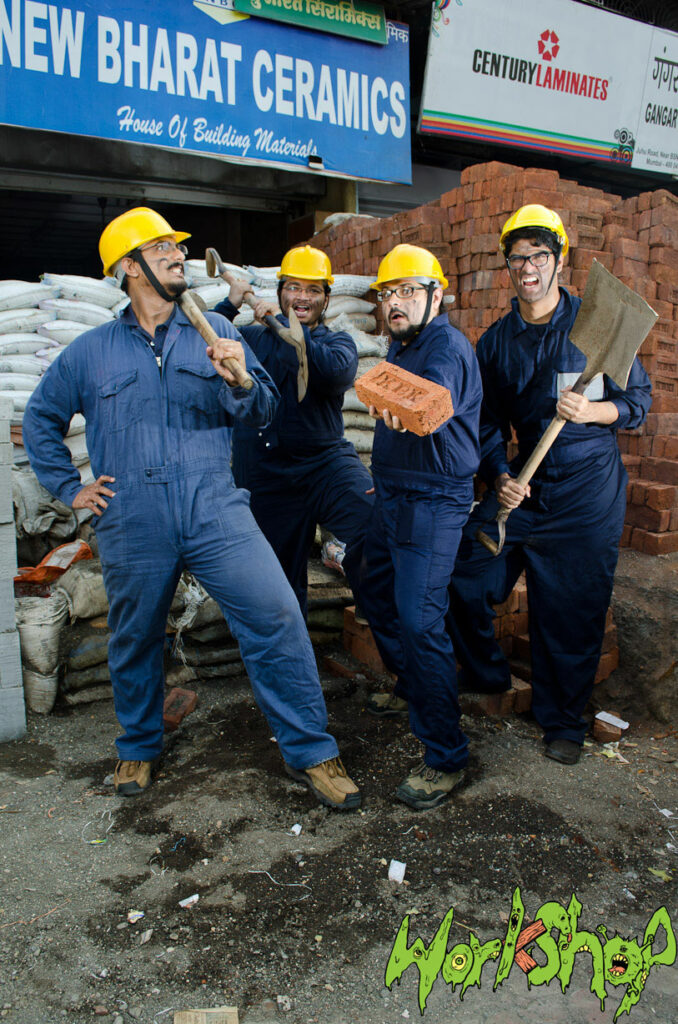
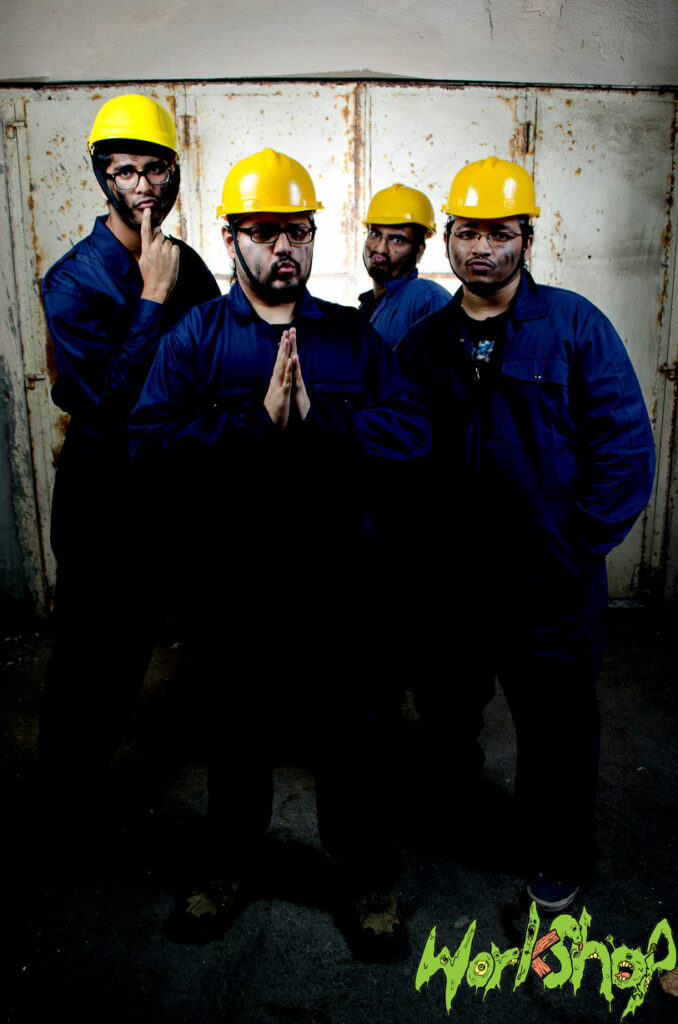
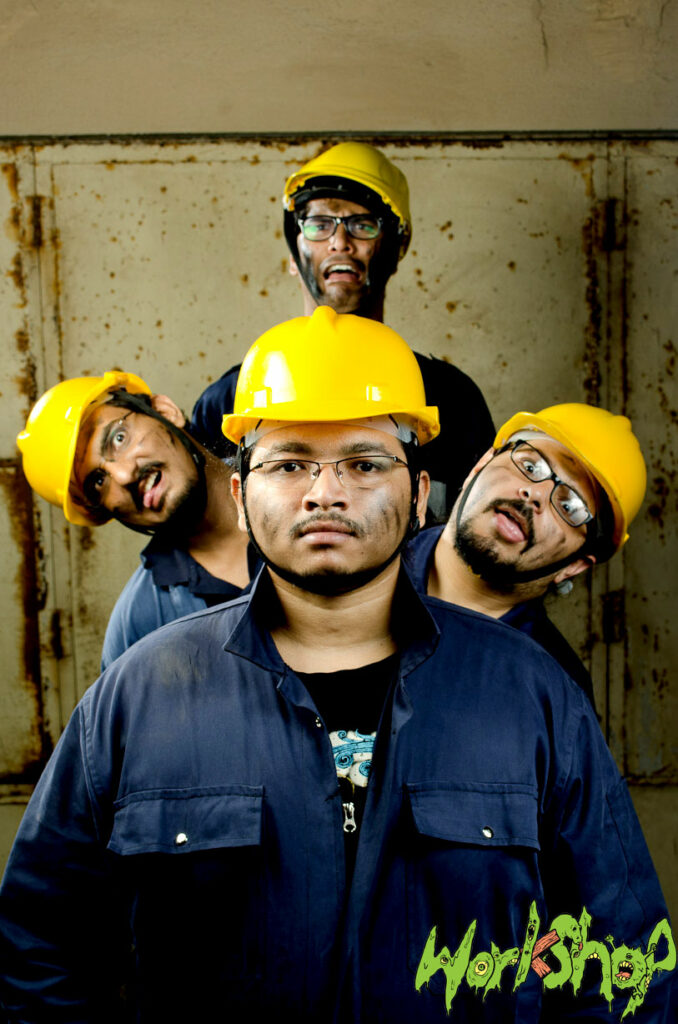

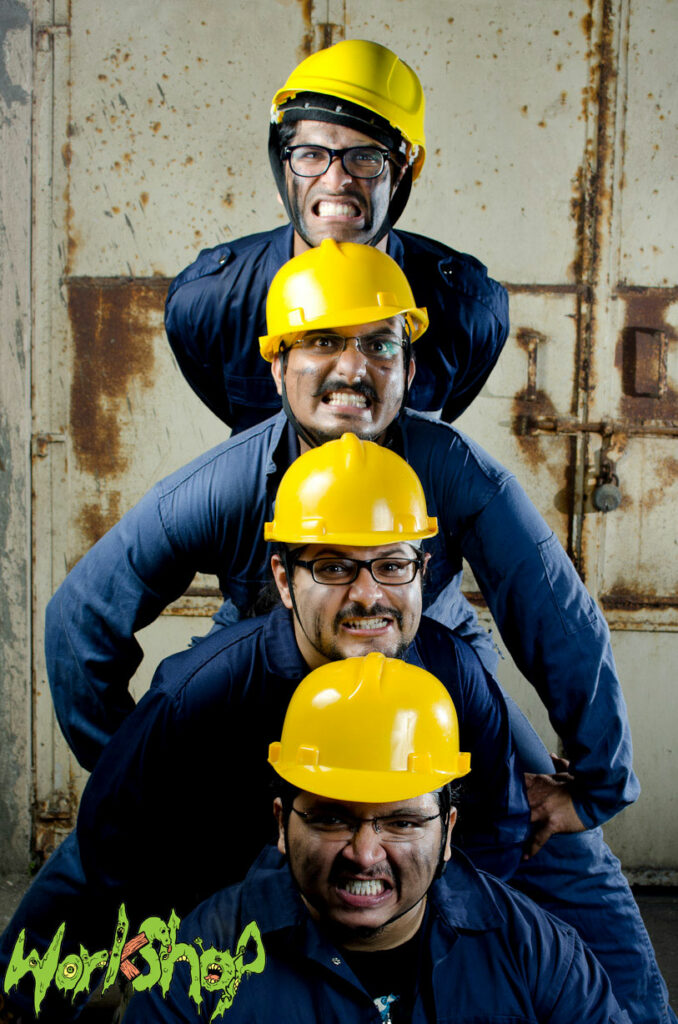
Eight Octaves: Ever thought of making a parody song on social issues? With the fan following you have, I guess that would help spread some awareness too.
DS: It is funny that you mentioned that because I very strongly believe in spreading awareness and making this country a better place to live in. To educate people, to open their eyes and to bring some kind of change, even if it’s small. Our album is underlined with some of the things I wanted to say and fans will hopefully discover those messages when they read the lyrics.
HK: For a change he’s actually serious about that. In light of the current situation our country has faced, we hope that people will look through the humour and realize that there’s a message that we’re trying to convey. Not cause we want to ride on the social wave but because we genuinely mean it. Like our humour and insanity, even our patience has its limits.
Eight Octaves: So the top priority after getting the album is reading the lyrics carefully, check. Okay now the new album – Made Love to the Dragon. What can we expect from it? Judging by the artwork, we are in for another round of rib-tickling madness I presume
DS: It is 110% Workshop. We’ve gotten groovier, funkier, funnier and more melodic even. We’ve kind of gone back to the basics of song-writing and just written some solid songs. I think there is a balance in this album and I think the fans will be the best judge of things.
HK: We can tell you what not to expect. The dragon on the cover is not going to come alive and jump in bed with you in case you’re looking at this as the only way to live out your hentai fantasies. Riju tried it. He failed. He contacted Blind Guardian and King Diamond for voodoo consultation and all he managed was to get some red stuff soil his pants. Quite similar to the album cover actually. But no… no dragon coochicooing happened.
Eight Octaves: The last album had everything; Garba, Pop, Bhangra, etc. Songs like BuntyaurMallikaSherawat and Kothae Doro Chho being my personal favourites. Any similar crazy stuff on the new album?
DS: Definitely we’ve obviously pushed the bar on this album and we’ve got everything from songs about property prices in Mumbai to songs like ‘She Came’ and ‘Naagin Ki Nazar’. I think we’ve definitely got a more cohesive sound with this record.
HK: By cohesive sound he means that all our songs are disco and djent at the same time. We took disco, which has to potential to make even Mithun famous and djent, which is currently ultra hip, and fused that together in order to become more famous than Mithun.
Eight Octaves: Any upcoming tours for Workshop after the album release? Maybe some shows in different cities?
DS: Yes we are indeed working on these but right now we’re only scheduled to play Blue Frog in Mumbai on the 10th of Feb along with Arquebus and What Google Can’t Find. It is going to be a really fun gig.
HK: Apart from that Sahil is now organizing Tour de Demonic Kitchen, 2 daily tours of his kitchen, the land from which amazing dishes like the Demonic Omelette and Meatzza have originated. If you pay 1,000 bucks more, you can also watch him cook something. No touching, only watching. Brought to you by Watching Powder Nirma.
Eight Octaves: Damn HK, you do know how to fool around 😀 What are the future plans for the band? Any videos or play-throughs coming our way from Workshop? Or maybe some collaboration for a single release?
DS: We just released a guitar play-through for the song ‘Made Love To The Dragon’. We already released a whole bunch of studio blogs. We also are working on tons of shows all over the country because we really want to get out there and just play for the fans and also make new fans along the way. I think Workshop is a band to experience live because it’s so much FUN!! We also have two music videos in the pipeline so lots of stuff coming your way.
HK: Somehow, I’m getting the feeling that Sahil has asked himself this question. How is it possible for you to know that we were going to release a guitar play-through?
Eight Octaves: Well HK, I am a journalist, I have done some homework on this 😀 Finally, any message for the maniacs who listen to your music?
DS: Well keep those funny bones alive. Don’t be a noodle, be a smoodle. Cheers and Stay Robotic.
HK: Haha you can’t keep bones alive man! Funny boners though, are probably possible. Why so sexist? We have messages for maniacs and womaniacs alike. Buy our album and feel the warmth and goodness grow inside you for having done some charity.
Workshop – Made Love To The Dragon guitar playthrough –





